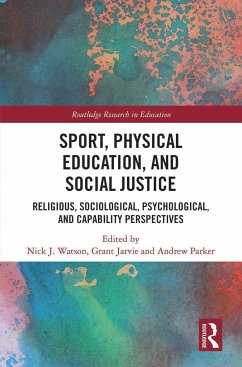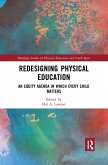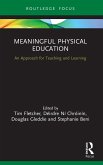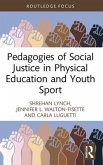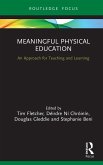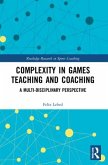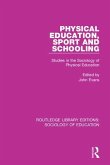This interdisciplinary collection explores the nexus of social justice and sport to consider how sport and physical education can serve as a unique point of commonality in an era of religious, political, economic, and cultural polarity.
Originally published as a special issue of Quest, Sport, Physical Education, and Social Justice offers timely theoretical perspectives from the fields of theology, philosophy, psychology, and sociology. The volume demonstrates the multiple ways in which sport can be used to overcome inequalities and marginalization relating to gender, race, disability, religion, and sexuality, and posits sports education as a powerful mechanism for addressing school-based issues including bullying, racism, and citizenship education. Truly international in scope, the text includes contributions from scholars addressing issues in both formal and informal sports education settings, communities, and locales.
Sport, Physical Education and Social Justice will be of interest to researchers, scholars, policy makers and advocates in the fields of education, psychology, sociology, and religious studies.
Originally published as a special issue of Quest, Sport, Physical Education, and Social Justice offers timely theoretical perspectives from the fields of theology, philosophy, psychology, and sociology. The volume demonstrates the multiple ways in which sport can be used to overcome inequalities and marginalization relating to gender, race, disability, religion, and sexuality, and posits sports education as a powerful mechanism for addressing school-based issues including bullying, racism, and citizenship education. Truly international in scope, the text includes contributions from scholars addressing issues in both formal and informal sports education settings, communities, and locales.
Sport, Physical Education and Social Justice will be of interest to researchers, scholars, policy makers and advocates in the fields of education, psychology, sociology, and religious studies.
"Social justice issues have come to the forefront of sports in recent times. Athletes, fans, and scholars have all wrestled with their renewed significance. Given such context, this collection edited by Watson (Archbishop of York Youth Trust, UK), Jarvie (Univ. of Edinburgh), and Parker (Ridley Hall, Cambridge) is a most welcome contribution to the ongoing conversations. Although a slim volume, it offers a rounded introduction to the use of sport to address inequality and exclusion. Across 11 chapters, leading experts consider religious, social, and philosophical accounts of the place of sport in remedying marginalization, misrepresentation, and disempowerment, particularly in relation to race, gender, religious affiliation, ability, and citizenship status. Individual chapters anchor themselves in various perspectives, e.g., Christianity and Judaism, education and cultural studies, as well as psychology and sociology, while considering such topics as homelessness, disability, racism, and citizenship. Importantly, the volume presents a cohesive and compelling case for the contemporary role of sporting worlds, especially calling on physical education to take a leading role in advancing social justice. This is both a primer and a handbook that merits a place in research libraries and upper-level college classrooms, as well as on the shelves of scholars concerned with sport and social justice." - C. R. King, Columbia College Chicago, CHOICE Review

